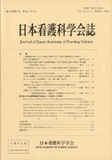Japanese
English
- 販売していません
- Abstract 文献概要
- 参考文献 Reference
- サイト内被引用 Cited by
要旨
本研究は,我が国のホスピスにおいて,看護婦が死にゆく患者及びその死にどのように対応しているか,その対応にはどのような「死」観が関与しているか,について明らかにしたものである.1ホスピスに勤務する看護婦14名を対象に,参加観察法と半構成的面接法によってデータを収集した.分析はデータをコード化,カテゴリー化することによって行い,その結果の一部として以下のような看護婦の「死」観と対応を抽出した.[良い看とり]は,看護婦相互の間で共有されていた患者の死の迎え方の理想像を示すものであり,看護婦は〈身体的症状がコントロールされた死の過程/穏やかな死に際〉〈死までの過程を有意義に過ごした死〉〈家族が納得する死〉〈臨終時に家族に見守られた死〉を望ましい死の迎え方だととらえていた.[良い看とり]は,看護実践の指針となっており,患者がそのような死を迎えることが出来るようかかわろうとしていた.また,看護婦が[良い看とり]ととらえたかどうかが彼らが抱く感情にも影響をもたらし,[良い看とり]の場合には肯定的感情を,そうならなかった場合には否定的感情を抱いていた.また看護婦は無意識のうちに患者に対して[良い看とり]となるよう期待していた.
Abstract
This study was conducted to clarify how of nurses working in a Japanese hospice responded to dying patients and their imminent deaths, and to characterize the perception of death which gave form to these responses and their nursing practices. The subjects included 14 nurses working in a Japanese hospice. The data was collected through participant observation and semi-structured interviews, broken into a series of stages or meaningful units, and then classified into categories. Based on the categories thus determined, the following characteristics of the nurses' behavior and attitudes, their psychological reactions, and their way of conceptualizing death.
Yoi-mitori represents a shared ideal among the nurses on how the death of a patient should be handled. The nurses viewed yoi-mitori as a pattern of death they should work to attain, consisting of four points:(1) control of physical symptoms such as pain and vomiting until death and peace at the time of death;(2) maintenance of meaningful life until the point of death;(3) acceptance of death by the family; and (4) the presence of the family in the final hours. Yoi-mitori was the most prominent factor in guiding the actual practices of the nurses and the nurses' involvement in the approaches of the patients toward their own death. The nurses' emotional responses were also affected by whether yoi-mitori could be achieved or not: If yoi-mitori could not be achieved, the were overcome with negative feelings, and when they felt it could be achieved, their responses were positive. The nurses also demonstrated an unconscious hope that the patients achieve yoi-mitori.
Copyright © 1999, Japan Academy of Nursing Science. All rights reserved.


